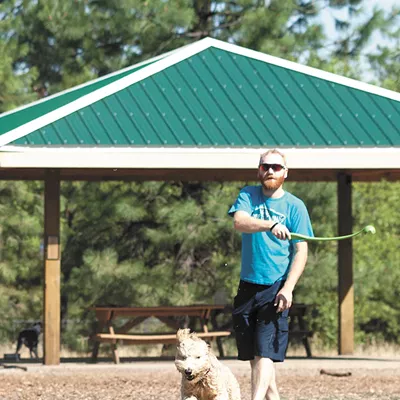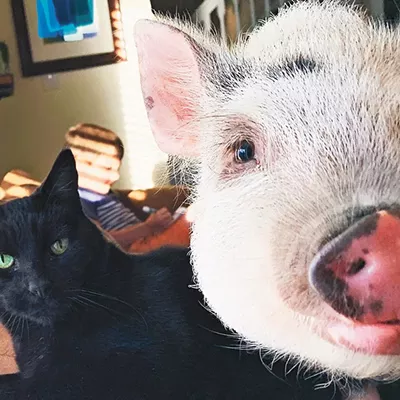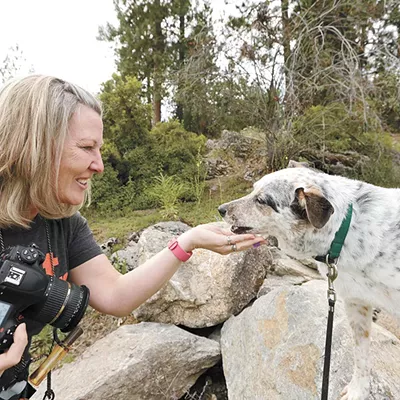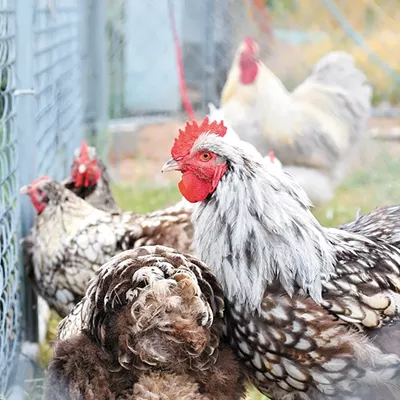I admit, I was in complete denial when the first person outside my household told me my cat looked "kinda chubby."
The numbers at the veterinary clinic, however, didn't lie: Dellie had gained 3 pounds in about a year, a 30 percent increase. Mortified that I'd let my fur baby get "fat," we agreed to immediately cut back her intake, and to switch to a low-calorie food. As it turns out, we'd accidentally fed her way too much by following the portion guidelines on her food bag, a common and well-intentioned mistake among pet owners, our vet told us.
While it took months for the weight to come off, the diet was a success and Dellie is now back to (and maintaining) a healthy 10-ish pounds, an ideal weight for a cat of her age and frame.
Since this personal yet far from unique experience with an overweight pet, I've paid close attention to the issue of pet obesity, now considered an epidemic as widespread as human obesity in the U.S. Based on data gathered in 2018, the Association for Pet Obesity Prevention estimates that 60 percent of cats and 56 percent of dogs in the U.S. are overweight or obese.
What's causing this rise in unhealthily large pets is harder to quantify because so many factors contribute, including age, breed, diet, activity level and misleading consumer messages. What's more clear, however, are the related health and quality-of-life issues that obesity in cats and dogs can cause or contribute to: arthritis, diabetes, heart failure, chronic inflammation, cancer and shortened lifespan.
"I think when I bring up weight with pets, most owners are aware, they just need someone to start that conversation about it," says Dr. Sarah Guess, a board-certified small animal internal medicine specialist, doctoral candidate researcher and adjunct faculty at Washington State University's College of Veterinary Medicine in Pullman.
"The most important thing is to reframe the problem to something that is taking the focus off being overweight and obese, and to making the [pet] as healthy as possible," she continues.
Throughout more than 30 years of practice, Dr. John Freeman at Lincoln Heights Veterinary Clinic in Spokane has also observed a rise in obesity in the animals he treats. The good news, he says, is that some overweight pets that develop related diseases like arthritis and diabetes often recover after dropping extra pounds.
"It's not just a simple problem," Freeman notes. "For one thing, people and dogs — or cats — love to interact with each other, and one way we do that is food. ... So it's a social thing; it's not understanding that dogs don't need to eat just because they come ask for food."
When consulting with clients whose pets could benefit from a diet, Guess and Freeman say the first step is cutting back how much food is given each day. (Don't do this without first talking to your own veterinarian.) Along with that, they advise measuring food at every meal to make sure you're not feeding more or less than the animal needs.
Also watch how many and what kind of treats you're giving, which could add a significant amount of calories. Guess suggests using fresh vegetables as dog treats, something she does for her own dog, a black lab that once put on a few extra pounds even under her watchful eye.
"What I recommend is subbing in healthy snack things like carrots and apples and spinach," she says. "It makes the owner and pet happy, but those calories end up being negligible."
For a comprehensive list of what veggies and fruits are OK to feed dogs (and cats), she recommends the ASPCA's website.
While the scale is a good starting point, weight isn't the only factor to consider when determining if your pup or kitty needs to cut back.
Because healthy weight and body composition for a pug versus a greyhound, for example, varies greatly, veterinarians use what's called a body condition score (BCS). Measuring on a scale of 1-9, with 4-5 considered ideal, veterinarians consider visual and physical observations, like how much extra fat is on an animal's back and hindquarters and if its ribs are visible or palpable to the touch, to score an animal. A BCS of 6 or above is overweight or obese.
"Trust your vet when it comes to nutrition advice," Guess concludes. "I'm all for doing your own research, but I think the non-veterinary world just has very little training on what kind of nutrition is required. A little exposure to the science and huge strides we've made in pet nutrition in the last 15 to 20 years — we're happy to share." ♦


























